December 2, 2015
November 11, 2015
October 28, 2015
IMET/Columbus Center Town Hall 10/28/15
Wednesday 28 October 2015 at 3:00pm
IMET/Columbus Center Town Hall in the MPR
September 30, 2015
September 9, 2015
June 4, 2015
Seminar 6/29/15: Dr. Berta Levavi-Sivan, Hebrew University
Monday 29 June 2015 at 3:00pm
Title: “Characterization of novel neuropeptides modulating fish reproduction”
Speaker: Dr. Berta Levavi-Sivan, Hebrew University
Abstract:
TBD
Host: Dr. Yonathan Zohar, Ph.D.
June 3, 2015
May 28, 2015
High School Intern from Place Lab recipient of multiple awards
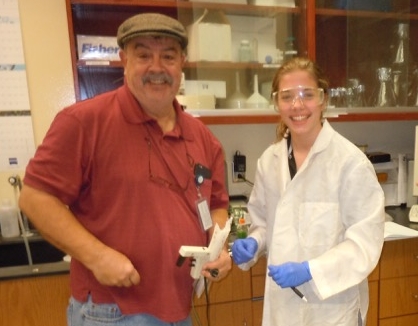
Baltimore, MD (May 28, 2015)
Valentina Lohr, a rising Junior at Thomas Jefferson High School for Science and Technology in Alexandria, VA, worked with IMET Professor Allen Place to investigate her idea for controlling the toxic fresh-water alga Microcystis aeruginosa. Valentina’s novel approach was to use an inhibitor of the mycosporine amino acid shinorine to make Microcystis aeruginosa more prone to photo-oxidation (“sunburn”) in nature.
Valentina's work culminated in a paper titled: "Targeted Nonlethal Disruption of Ultraviolet Photoprotection in Microcystis aeruginosa". In the category Microbiology and Cell Biology, Valentina received the Ann M. Hancock Cellular Biology award for outstanding work in Cellular Biology, the Virginia Sea Grant Award for environmental research, the Virginia Academy of Sciences award for best research paper as determined by the senior members of VAS, and the Erle Thompson Memorial Endowment Fund Award to pay for presentation of her paper at a national conference in Washington DC in February. At the Junior Science and Humanities Symposium, she received an award for outstanding work in environmental science.
May 27, 2015
IMET Town Hall 5/27/15
Wednesday 27 May 2015 at 3:00pm
IMET Town Hall in the MPR
May 20, 2015
IMET pleased to host Dr. Fred Ausubel as part of Distinguished Seminar Series
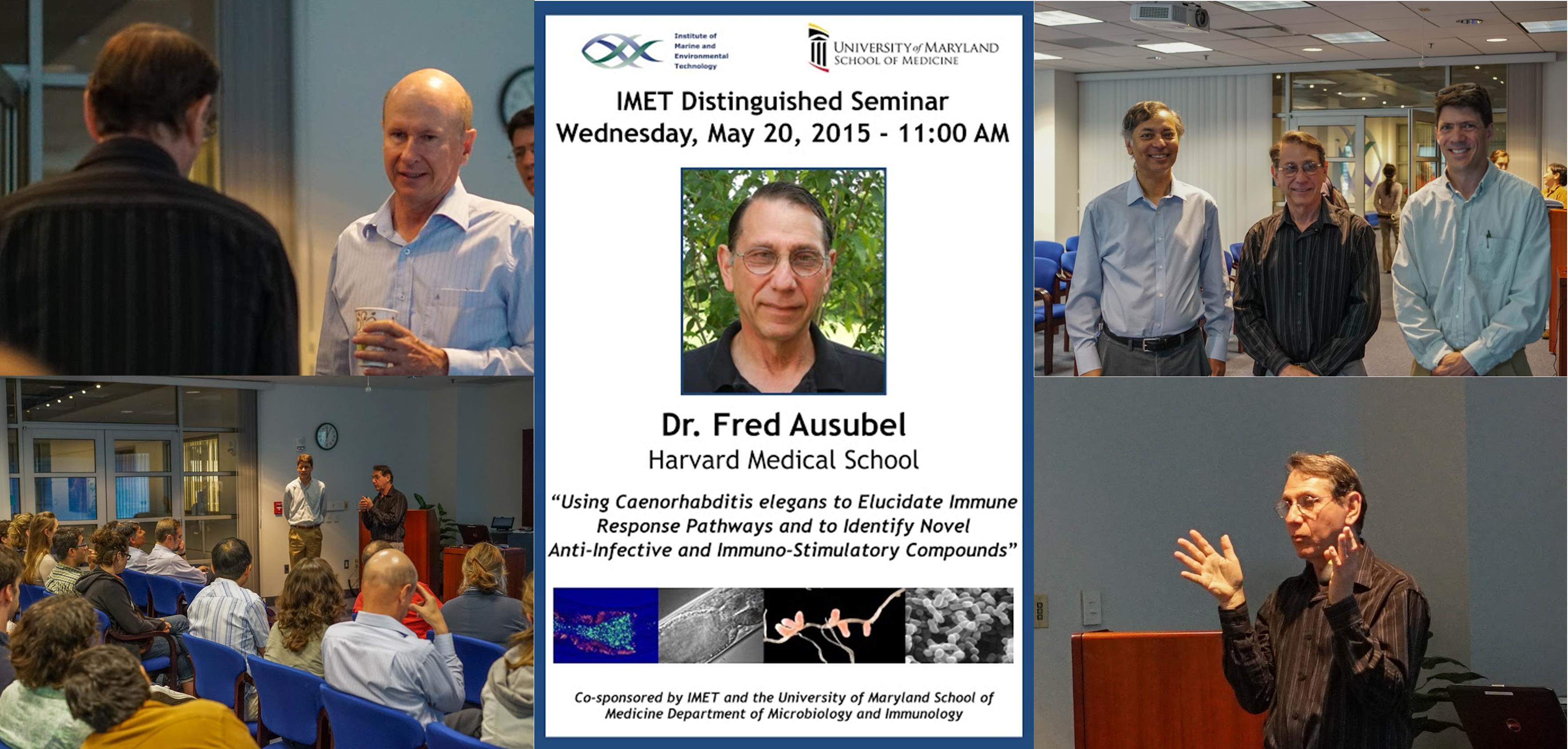
Baltimore, MD (May 20, 2015)
The Institute of Marine and Environmental Technology (IMET) welcomed Dr. Fred Ausubel (Harvard Medical School) as part of the IMET Distinguished Seminar Series on Wednesday, May 20. Dr. Ausubel's talk, titled “Using Caenorhabditis elegans to Elucidate Immune Response Pathways and to Identify Novel Anti-Infective and Immuno-Stimulatory Compounds”, was given to a packed house at the Columbus Center. IMET would like to thank Dr.'s Eric Schott (one of Dr. Ausubel's former students) and Shiladitya DasSarma, and of course Dr. Fred Ausubel, for helping make this seminar possible.
The Department of Microbiology and Immunology at the University of Maryland School of Medicine were joint-sponsors of this event.
Seminar 5/20/15: Dr. Fred Ausubel, Harvard Medical School
Wednesday 20 May 2015 at 11:00am
Title: “Using Caenorhabditis elegans to Elucidate Immune Response Pathways and to Identify Novel Anti-Infective and Immuno-Stimulatory Compounds”
Speaker:
Dr. Fred Ausubel, Harvard Medical School
Click here for Dr. Ausubel's BioSketch.
Host: Dr. Eric Schott, Ph.D.
May 14, 2015
Seminar 5/14/15: Kathleen Gillespie, Ph.D. Candidate
Thursday 14 May 2015 at 12:00pm
Title: “Characterization of the eukaryotic translational initiation factor (eIF4E) family members in zebrafish (Danio rerio)”
Dissertation Defense Seminar
Adviser: Rose Jagus, Ph.D.
May 13, 2015
May 5, 2015
May 2, 2015
Bay Day @ PWEC - 5/2/15
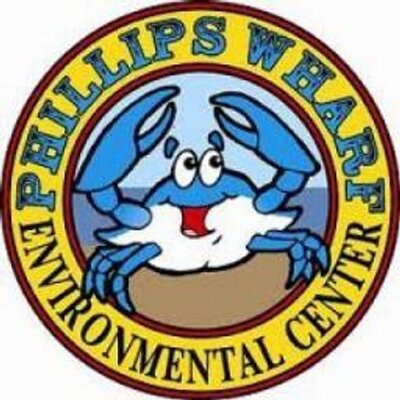
Phillips Wharf Environmental Center (PWEC) will celebrate Bay Day, with a fun and festive event on Saturday, May 2nd from 11 AM – 3 PM at Knapp’s Narrows Bridge, 6129 Tilghman Island Road (Route 33), Tilghman, MD. This free event is open to the public.
On site there will be a touch tank with native sea animals and plants in the Oyster House. Scientists, authors and experts will be on hand with information on everything from rain gardens to native plants, oyster restoration, storm water management, living shorelines and energy alternatives. Local food, crafts, kayak demonstrations, live music and children’s games and will also be featured.
The Institute of Marine and Environmental Technology (IMET) will be in attendance as an exhibitor, featuring information about the Institute as well as several of its researchers who will be able to discuss their work. IMET is a strong supporter of the PWEC mission, and one of our faculty, Eric Schott, even sits on the PWEC board.
April 29, 2015
April 28, 2015
Seminar 4/28/15: Chieh-lun “Jerren” Liu, Ph.D. Candidate
Tuesday 28 April 2015 at 12:00pm
Title: “Changes in eIF2α phosphorylation in response to nutrient deficiency and other stressors in fish”
Dissertation Defense Seminar
Adviser: Rose Jagus, Ph.D.
April 22, 2015
Seminar 4/22/15: Dr. Maya Groner, University of Prince Edward Island
Wednesday 22 April 2015 at 3:00pm
Title: “Understanding eelgrass wasting disease in a changing climate”
Speaker:
Dr. Maya Groner, Department of Health Management, Atlantic Veterinary College, University of Prince Edward Island
Abstract:
Understanding eelgrass wasting disease in a changing climate
Host: Dr. Colleen Burge, Ph.D.
April 16, 2015
High School Intern in Vasta Lab wins Science Fair
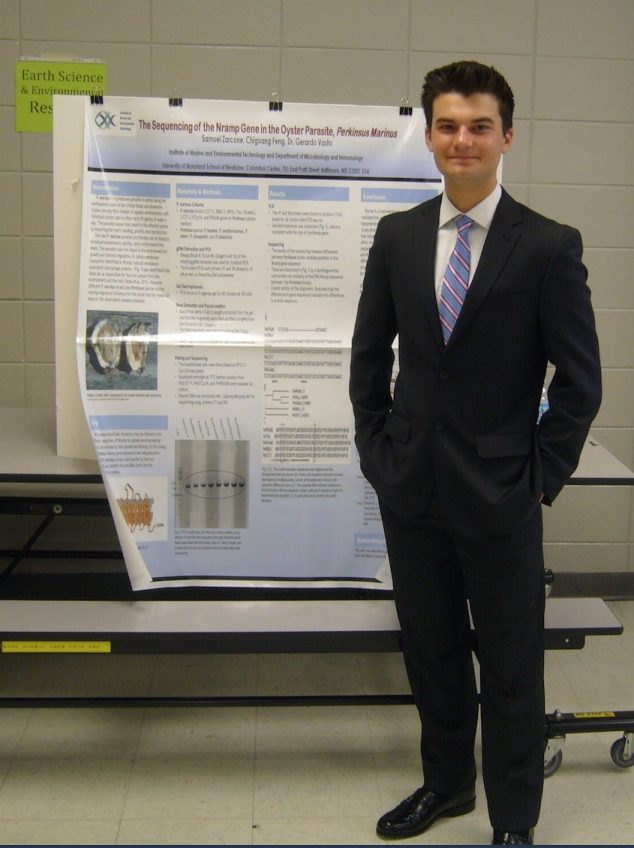
Baltimore, MD (April 16, 2015)
High school student Sam Zarcone was awarded first prize at the 2015 HCPSS STEM Science Fair, which brings together students from all across Howard County. The science fair was held in Columbia, MD on Saturday, April 11, and was attended by over 135 middle and high school students and their families.
Sam served as a student intern in the laboratory of Dr. Gerardo Vasta at IMET during the most recent semester.
For more information on the HCPSS STEM Science Fair, click here.
April 15, 2015
April 8, 2015
April 1, 2015
March 30, 2015
Researchers from IMET and UMBC begin field testing bioremediation technology for removing PCBs in Altavista, VA
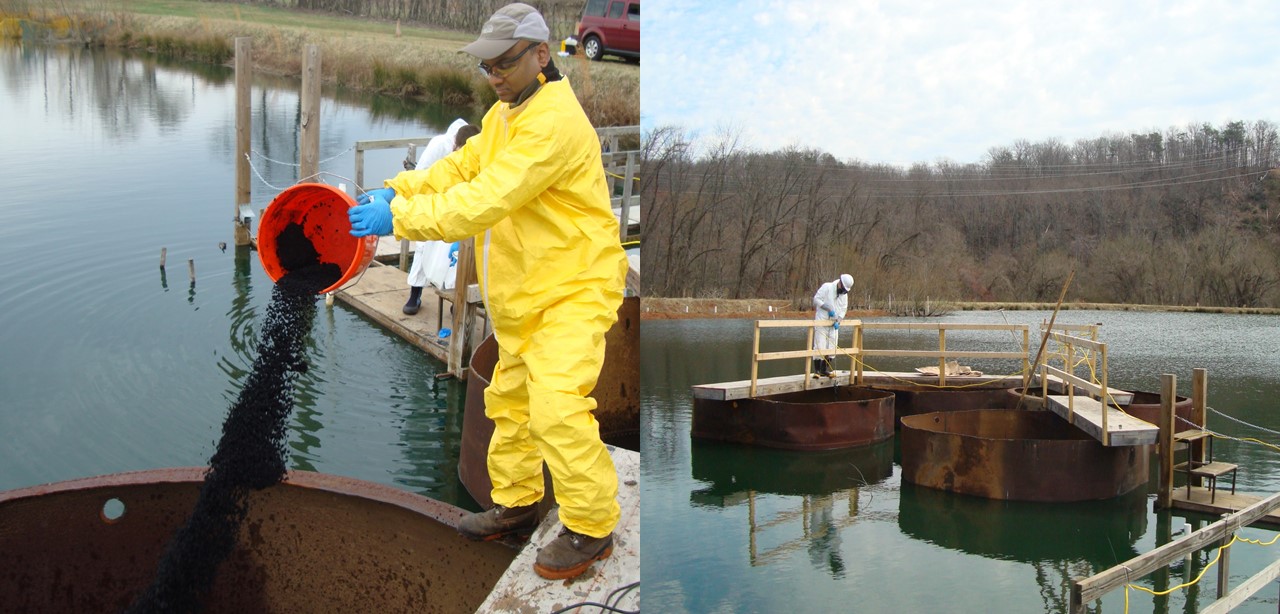
Altavista, VA (March 30, 2015)
After more than a decade of laboratory research on PCB dechlorination by Dr. Kevin Sowers at UMBC-IMET, and in-situ remediation of PCBs by Dr. Upal Ghosh in the UMBC Dept. of Chemical, Biochemical and Environmental Engineering, field tests have started, aimed at providing the first practical microbial in-situ treatment system for PCBs.
A large pilot scale demonstration was initiated on 17 March to test an innovative technology to clean up PCBs in a former wastewater treatment pond in Altavista VA. The technology, which employs naturally occurring PCB degrading microorganisms, addresses the current need for an environmentally sustainable and cost-effective alternative to current remediation technologies of dredging and capping to treat PCB impacted sediments throughout the U.S.
The most widely applied technologies for remediation of PCB-contaminated sediments are dredging and transfer to landfills or capping with clean sediments. In addition to being cost prohibitive for large areas of contamination in rivers, lakes and coastal sediments, these technologies are disruptive to environmentally sensitive areas such as marshes and wetlands. Recent in-situ studies have demonstrated the feasibility of PCB bioavailability reduction using activated carbon as an amendment. While these studies have been effective in reducing PCB bioavailability in sediments at sites with high concentrations of PCBs, a more desirable goal is to ultimately reduce the inventory of legacy PCBs in sediments while also reducing bioavailability to the food chain. Development of an in situ treatment system that enhances natural microbial activity, bioaugmentation, would provide a more cost-effective, and environmentally sustainable means of treating persistent organic pollutants such as PCBs. Such a system would eliminate high costs associated with dredging and removal and would have minimal negative impact on the environment since it employs communities of naturally occurring microorganisms.
This project is the culmination of more than a decade of laboratory research on PCB dechlorination by Dr. Kevin Sowers at UMBC-IMET, and in-situ remediation of PCBs by Dr. Upal Ghosh in the UMBC Dept. of Chemical, Biochemical and Environmental Engineering, that is now ready for synergistic implementation in the field. The innovative aspect of the technology is the development of a bioamended activated carbon pellet seeded with PCB- degrading microorganisms to reduce the concentration of polychlorinated biphenyls (PCBs) in sediments. Combining PCB dechlorinating and degrading microorganisms with SediMite(TM), a solid substrate which includes activated carbon particles, has been shown in the laboratory to achieve two major objectives: 1) rapid reduction of PCB levels that are bioavailable to the aquatic food chain through sequestration on the carbon surface, and 2) permanent reduction of total PCB concentrations in impacted sediments by microbial dechlorination and subsequent aerobic biodegradation of contaminants.
The field test is being conducted in a six-acre former wastewater treatment pond that contains PCB impacted sediments that resulted from decades old industrial waste streams released into the pond when it was active. A small in-situ study initiated in the pond in 2012 showed up to 80 % reduction in PCBs levels using this bioremediation technology. Based on these results the large-scale field test was begun in 10 foot diameter steel caissons placed in the pond by the Town of Altavista to demonstrate the efficacy of the technology for treating a large area. Successful validation of this technology in Altavista would provide the first tractable microbial in-situ treatment system for PCBs. In addition to lower cost, bioremediation would have a significantly reduced environmental impact compared with dredging by reducing the health risks associated with sediment disruption, reducing overall energy use and negating the requirement for extensive waste management and substantial habitat restoration.
March 27, 2015
Seminar 3/27/15: Fan Zhang, Ph.D. Candidate
Friday 27 March 2015 at 2:00pm
Title: “Roles of the symbiotic microbial communities associated with sponge hosts in the nitrogen and phosphorus cycles”
Dissertation Defense Seminar
Adviser: Russell Hill, Ph.D.
March 19, 2015
Shamrock Shindig at the Columbus Center

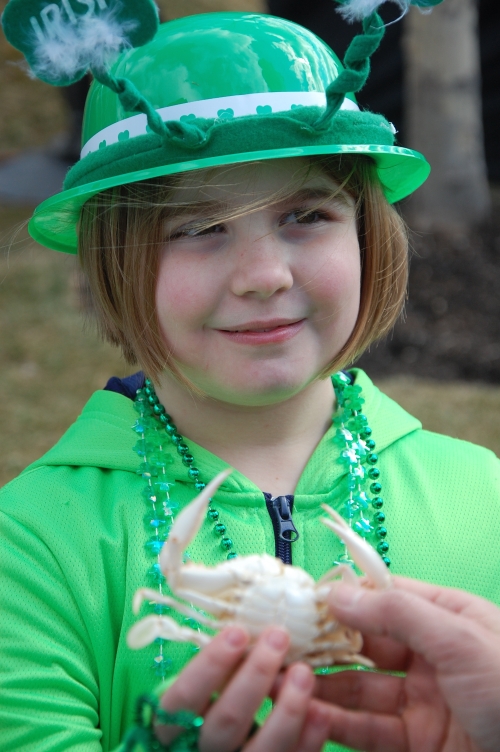

Baltimore, MD (March 15, 2015)
IMET joined the Waterfront Partnership to help sponsor the 4th Annual Shamrock Shindig, held in Pierce's Park, just behind the Columbus Center in Baltimore's Inner Harbor. Despite some blustery weather, IMET was able to set up a booth displaying a bit of the interesting research going on there. Participants were able to see live blue crabs, examine blue crab molting, and see the process to generate algal biofuel. In addition, several IMET scientists and students were on hand to answer questions and describe their work. IMET is looking forward to participating in this great event again next year.
March 13, 2015
IMET-Partner Institutions Seed Grant Program

Baltimore, MD (March 13, 2015)
The Institute of Marine and Environmental Technology (IMET) initiated their IMET-Partner Institutions Seed Grant Program last spring, with the selection committee choosing to fund four projects in the first cycle for $100,000 each. The program stipulates that projects must include members from IMET and at least one of their partner institutions, which include University of Maryland Baltimore County (UMBC), University of Maryland Baltimore (UMB), University of Maryland Center for Environmental Science (UMCES). “Our seed grant program is an excellent example of the way that IMET can serve as a catalyst for collaboration among our partner institutions,” said IMET Director Russell Hill.
March 11, 2015
February 26, 2015
Russell Hill Chosen for Leadership Maryland Class of 2015
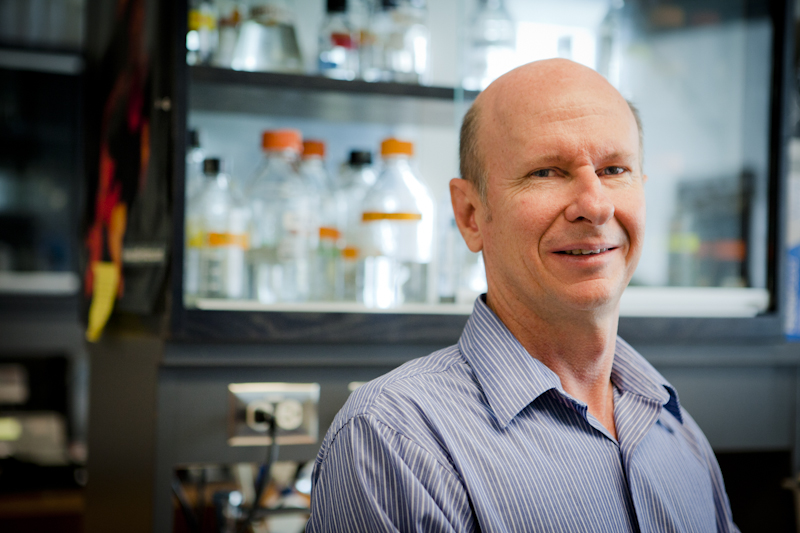
Annapolis, MD (February 26, 2015)
Leadership Maryland announced today that Prof. Russell T. Hill, director of the Institute Marine Environmental Science and professor at University of Maryland Center for Environmental Science, has been chosen to participate in the professional development program dedicated to building a stronger Maryland by educating, cultivating and connecting our state’s brightest leaders. Professor Hill is one of 50 Maryland leaders chosen for Leadership Maryland’s 23rd class – the Class of 2015 – who will complete the eight-month hands-on learning program focused on the state’s most vital social, economic and environmental issues.
Following a two-day opening retreat in April, the class will attend five two-day intense sessions focusing on Maryland’s economic development, education, health and human services, criminal justice, the environment, and multi-culturalism/diversity. These sessions will be followed by a one-day closing retreat in November and a graduation celebration in December. More than 100 experts representing business, government, education, and the non-profit community will serve as panelists and guest speakers.
“The selection process for the Class of 2015 was very competitive this year, as we had an extraordinary pool of diverse and experienced applicants to choose from,” said Renée M. Winsky ‘05, president and Chief Executive Officer, Leadership Maryland. “The 50 selected participants represent a broad spectrum of highly-qualified executives from across the state, and we are confident that their Leadership Maryland experience will help them to play an even greater role in our unified effort to shape the future of our state.”
Leadership Maryland is open to senior-level executives with significant achievements in either their careers and/or their communities. Ideal Leadership Maryland members have a desire to learn more about Maryland’s most critical issues and a personal commitment to be a force for positive change in their organizations, their communities, and their state. For more information about Leadership Maryland, please visit www.LeadershipMD.org, call 410-841-2101 or email Info@LeadershipMD.org.
About Leadership Maryland
Leadership Maryland is a professional development program dedicated to building a stronger Maryland by educating, cultivating and connecting our state’s brightest leaders. Each year, as many as 52 diverse and accomplished executives from Maryland’s public and private sectors are selected to come together as a class for an eight-month hands-on learning program focused on the state’s most vital social, economic and environmental issues. The first Leadership Maryland class graduated in 1993, and the organization’s alumni network now consists of more than 1,000 leaders from all industries and regions of the state. To learn more, please call Leadership Maryland at 410-841-2101 or visit www.LeadershipMD.org.
February 25, 2015
Seminar 2/25/15: Dr. Matteo Avella, National Institutes of Health
Wednesday 25 February 2015 at 3:00pm
Title: “Mouse Genetics Document Novel Molecular Mechanisms for Gamete Recognition and Acrosome Exocytosis in Mouse and Human Fertilization ”
Speaker:
Dr. Matteo Avella, National Institutes of Health, Laboratory of Cellular and Developmental Biology
Abstract:
TBD
Host: Dr. Allen Place, Ph.D.
February 18, 2015
Seminar 2/18/15: Dr. Suzanne Skelley, NOAA
Wednesday 18 February 2015 at 3:00pm
Title: “NOAA’s Cooperative Oxford Lab: Science Portfolio in Context of NOAA, National Ocean Service and National Centers for Coastal Ocean Science Priorities”
Speaker:
Ms. Suzanne Skelley, NOAA
Abstract:
NOAA’s Cooperative Oxford Lab is shared by National Ocean Service, National Marine Fisheries Service and Maryland Department of Natural Resources Fisheries Service. The research portfolio of its scientists is driven by the priorities of the respective organizations. The long term co-location of the three organizations is instrumental in forging common areas of interest and work. NOAA’s designation of the Choptank and Little Choptank watersheds as a habitat focus area provides a focal point for cross- Lab collaboration. The seminar will describe the Lab’s collaborative research efforts from the perspective of its Director who is from the National Ocean Service.our understanding of the potential roles bacteria may play in the unusual sacoglossan lifestyle.
Host: Dr. Sook Chung, Ph.D.
February 10, 2015
IMET congratulates Matt Moore on being named UMBC Employee of the Quarter
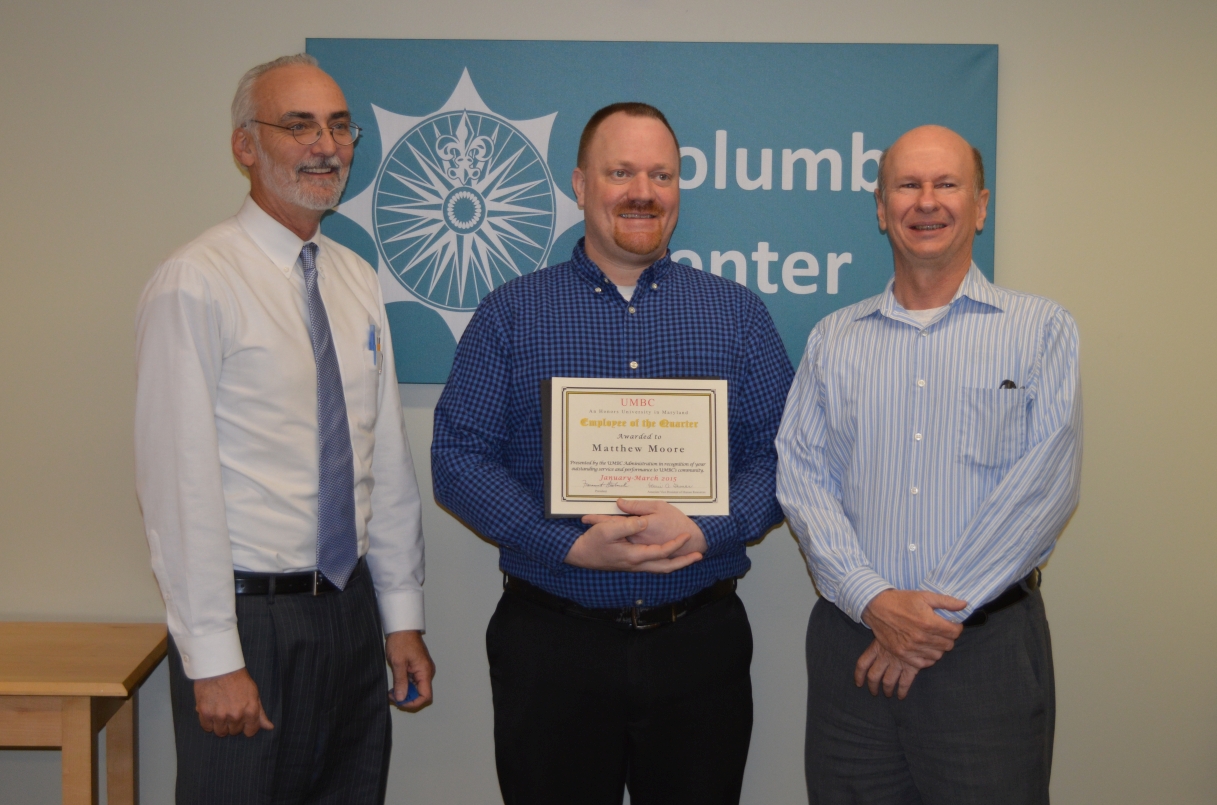
Baltimore, MD (February 10, 2015)
Matt Moore, Facilities Manager for the Columbus Center Operations, has been named one of University of Maryland Baltimore County's (UMBC) Employees of the Quarter. Matt started his career as the Assistant Facilities Manager for the University of Maryland Biotechnology Institute (UMBI) Columbus Center in 1996. He was later promoted to Manager and became a UMBC employee after the 2010 University of Maryland System reorganization. This award recognizes Matt for "outstanding qualities and contributions ... towards departmental and UMBC's goals and mission." No one is more deserving of this award than Matt, and IMET would like to thank him for his tireless efforts.
For more information on UMBC's Employee of the Quarter Award, click here.
February 4, 2015
Seminar 2/4/15: Dr. Wolf Pecher, University of Baltimore
Wednesday 4 February 2015 at 3:00pm
Title: ““A foul smell and a salty aftertaste” – Using microbes to track pollution”
Speaker:
Dr. Wolf Pecher, University of Baltimore
Abstract:
“A foul smell and a salty aftertaste” – Using microbes to track pollution
Host: Dr. Shiladitya DasSarma, Ph.D.
January 28, 2015
January 26, 2015
Environmental entrepreneurs complete first semester of program that brings students and business leaders together at IMET
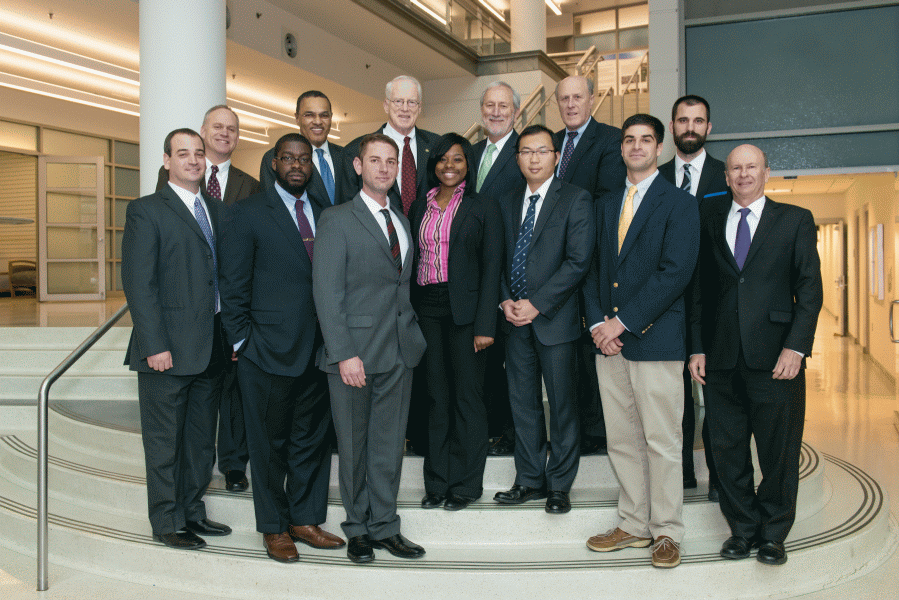
BALTIMORE, MD (January 26, 2015)
Graduate students at the Institute of Marine and Environmental Technology (IMET) in Baltimore’s Inner Harbor recently completed the first semester of an entrepreneurial boot camp focusing on basic business principles, venture capital and entrepreneurism. The Ratcliffe Environmental Entrepreneurs Fellowship Program was established in June 2014 with funding from the Philip E. and Carole R. Ratcliffe Foundation to help young scientists cultivate the leadership and business skills necessary to bring their bench research into commercial markets.
During the past semester, the Program featured a veritable who’s who of experts from Baltimore’s innovative science and technology community. These included Steve Dubin, of SDA Ventures and former CEO of Martek; Ted Olsen of PathSensors; Paul Silber of Blu Venture Investors; Jason Brooke of Vasoptic Medical. The program brought in real world experts as such as patent attorneys Nick Landau of Bradley Arant Boult Cummings LLP and Gianna Arnold of Saul, Ewing LLP. Jamie Lacey-Moreira of Press Comm Public Relations and Jennifer Dodson of Adashmore Creative led activities on strategic marketing. Ken Malone, CEO of Early Charm Ventures, who has launched several companies in Maryland and in other states, provided advice to the program throughout the semester.
“This is just the beginning,” said Russell Hill, Director and Professor at the Institute of Marine and Environmental Technology. “We believe that this entrepreneurship program is going to have a demonstrable impact on our students by broadening their career horizons. We also anticipate that the program will help to recruit new students in biotechnology who want to exercise their scientific skills within a business framework. We are grateful to the Ratcliffe Foundation for making these opportunities possible.”
The program runs over the course of two semesters with the Spring semester catalyzing the learnings of the Fall semester in the form of business plans and investor pitches. The Spring semester will host a number of prominent business leaders from Maryland, such as Rachel King of GlycoMimentics, Steve Davey of DSM Nutritional Products, and Blake Paterson of Cerecor.
“The program includes stipend support for two students, short course programs over four weekends for a cohort of eight students as well as externship opportunities,” said Ratcliffe Environmental Entrepreneurs Fellowship Program Director Nick Hammond. “We also have a pool of seed funds available to students who wish to launch their own businesses. One student has already received a seed grant to support his start up concept.”
Recognizing that careers in academia are limited for scientists, the Ratcliffe Environmental Entrepreneurs Fellowship Program prepares students to gain a more informed appreciation of the potential business implications of their research discoveries. This effort is helping some students start their own small businesses in environmental science and helping others to prepare for careers in large companies working on such issues at nutritional supplements, aquaculture, environmental health and alternative fuel development.
January 23, 2015
IMET scientist receives continued support from anonymous donor to advance research in sustainable aquaculture
BALTIMORE, MD (January 23, 2015)
A local donor, who wishes to remain anonymous, has made a generous philanthropic gift to support the sustainable aquaculture work of marine biologist Yonathan “Yoni” Zohar at the Institute of Marine and Environmental Technology (IMET) in Baltimore’s Inner Harbor. The contribution of $380,000 will support Dr. Zohar’s work as chair of the Department of Marine Biotechnology at UMBC. He also leads the Aquaculture Research Center at the Institute of Marine and Environmental Technology (IMET) in Baltimore.
“I continue to be gratified and inspired by the tremendous outpouring of support from local and national funders who have demonstrated confidence in our efforts to advance sustainable aquaculture,” said Zohar. “Together, we are expanding the possibilities for providing long-term sources of food to sustainably feed the planet. As the oceans’ fisheries continue to show signs of dramatic depletion, solutions to provide a consistent supply of healthy seafood will become increasingly more important.”
IMET is a global leader in sustainable aquaculture research. Past support from individuals and foundations has catalyzed new and innovative research on a variety of species, including Mediterranean sea bream, sea bass (Bronzini) and bluefin tuna. Zohar’s research, well known worldwide, has discovered ways to close the life cycle of a variety of species in pristine, environmentally responsible ways. He and his team have developed efficient and sustainable hatchery and farming technologies for commercially and ecologically important marine fish. The most recent funding is supporting Dr. Zohar’s research on bluefin tuna, one of the most valuable marine commodities in the world.
“Tuna are a highly valuable across the globe, but unfortunately they are severely overfished,” said Zohar. “We have brought tuna eggs to IMET’s Aquaculture Research Center in an effort to grow these fish to juvenile stages, thus overcoming the main hurdle to their farming. Our efforts have made considerable progress, but more research is needed to ensure that we can sustain this important species for generations to come.”
IMET scientists are at the leading edge of efforts to manage commercial fishing, restore natural stocks and produce marine fish through sustainable aquaculture. In response to the decline in fisheries resources, Zohar notes that marine aquaculture has been steadily growing. However many current aquaculture practices are not environmentally responsible or optimal for fish.
“The generosity of many individuals, foundations and corporations is making a long-term, demonstrable impact to advance critical research in aquaculture,” said IMET Director Russell Hill. “We are grateful for their support and foresight in addressing this important environmental issue and we are proud of the excellent research being conducted by Dr. Zohar and his team.”
January 22, 2015
IMET attends MD Waterman's Expo

OCEAN CITY, MD (January 19, 2015)
A team of IMET scientists participated in the East Coast Commercial Fishermen’s and Aquaculture Trade Exposition in Ocean City last weekend. IMET developed and staffed an exhibition booth at the Expo focusing on its blue crab hatchery program. Posters, live broodstock, and hatchery-produced juvenile crabs were displayed. The booth attracted significant interest among Mid-Atlantic watermen, aquaculturists, biologists, state/federal resource managers, and the teaching community.
For more information on the Maryland Waterman's Expo, click here.
January 21, 2015
January 15, 2015
IMET joins the Maryland Business Incubation Association
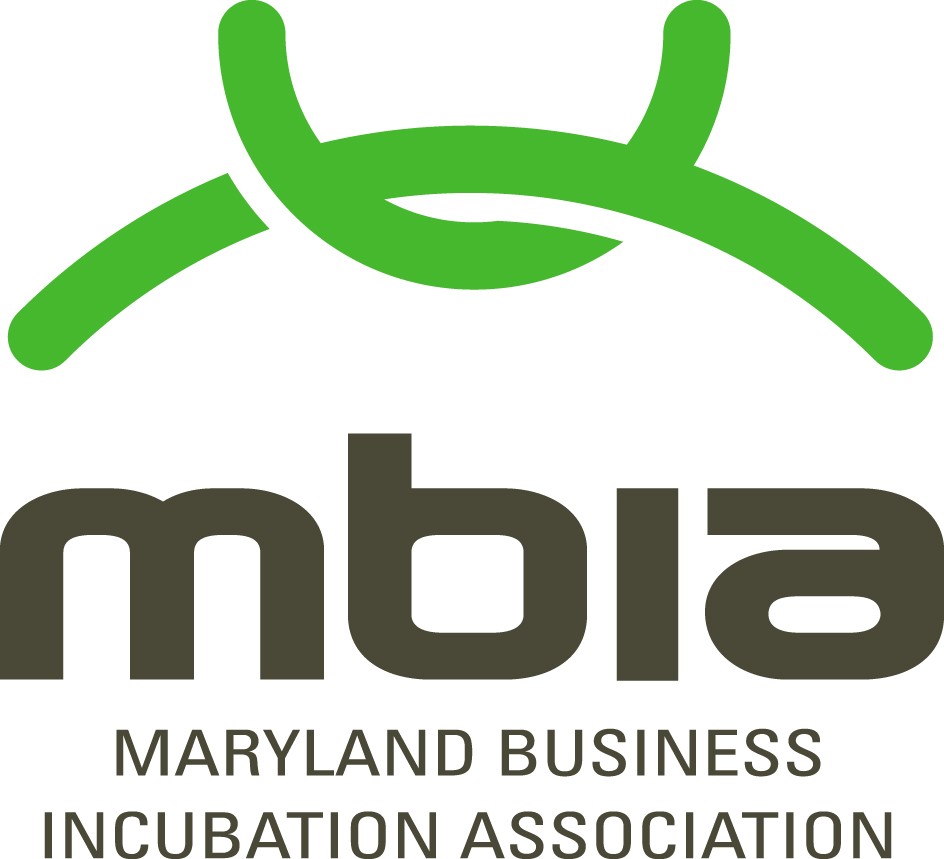
BALTIMORE, MD (January 7, 2015)
The Institute of Marine and Environmental Technology (IMET)'s Environmental Biotechnology Incubator (EBI) program has officially joined the Maryland Business Incubation Association (MBIA). This collaboration will greatly aid in informing Maryland startups about the EBI program at IMET, as well as providing a new partner that can contribute to the growth of the program as a whole.
The MBIA was founded in 2002 to advance business incubation in Maryland. Representing 22 incubators, MBIA supports nearly 550 companies across the state in both urban and rural areas. Since its inception, their incubators have generated 11,800 jobs, making it equivalent to one of the state’s largest employers.
The EBI program at IMET serves as a business incubator for young companies working to promote the development of products and services having a positive impact on the environment and human health. The scientists at IMET create technologies designed to foster the protection and restoration of coastal marine systems, sustainable use of their resources and improvement of human health. Incubation of small businesses focused on this mission will further IMET’s important role in economic development, protection of marine systems, and the promotion of human health.
For a detailed look at the EBI program at IMET, click here.
To see more on this in the Baltimore Business Journal, click here.
IMET chosen as one of the top 10 names to know for Baltimore startups.
January 7, 2015
Seminar 1/7/15: Emily Flowers
Wednesday 7 January 2015 at 11:00am
Title: “Ecology of a fatal blue crab virus: Detection, genetic diversity, and prevalence of Callinectes sapidus reo-like virus”
MS Thesis Defense Seminar
Adviser: Eric Schott, Ph.D.
January 6, 2015
Seminar 1/6/15: Javier Alvarez, Ph.D. Candidate
Tuesday 6 January 2015 at 12:30pm
Title: “Understanding molecular mechanisms regulating the initial shell-hardening process of the blue crab, Callinectes sapidus: involvement of prophenoloxidase and tanning hormone, bursicon”
Dissertation Defense Seminar
Adviser: J. Sook Chung, Ph.D.
December 19, 2014
Dr. Robert Caret appointed as Chancellor of University System of Maryland
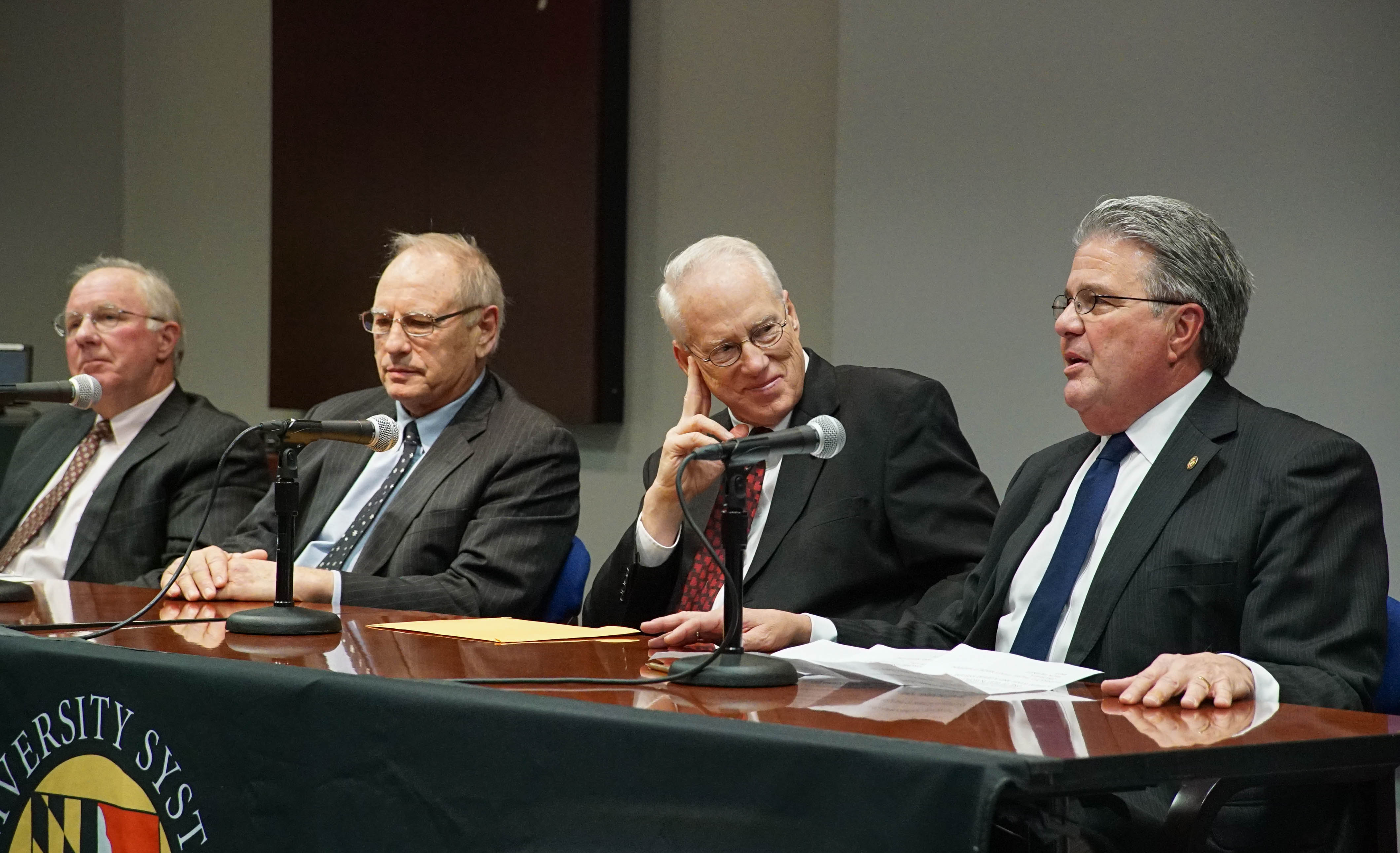
BALTIMORE, MD (December 19, 2014)
Dr. Robert Caret, current President of the University of Massachusetts System, has been appointed the next Chancellor of the University System of Maryland in a press conference taking place at the Columbus Center in Baltimore, MD. Dr. Caret's appointment follows a six-month, extensive national search led by Rick Berndt, chair of the search-and-screening committee, managing partner of Gallagher Evelius & Jones LLP (a Baltimore law firm), and a former USM regent.
Dr. Caret has spent 29 years of his career working within the University System of Maryland, most notably spending 25 years at Towson University, including 8 years as President from 2003-2011. Dr. Caret is expected to assume the role of Chancellor effective July 1, 2015. Outgoing Chancellor Dr. Brit Kirwan, who announced he would be leaving the position in May, has served in the role for 12 years.
For more information on Dr. Caret's appointment, click here.
To see comments by Dr. Robert Caret on the appointment, click here.
December 16, 2014
IMET welcomes Dr. Colleen Burge to our faculty
BALTIMORE, MD (December 8, 2014)
IMET is happy to announce the arrival of Dr. Colleen Burge as our newest faculty member. Dr. Burge joins us from the University of Washington, where she served as a Postdoctoral Research Associate. Dr. Burge's appointment will be split under the UMBC Department of Marine Biotechnology and the UMB Department of Microbiology and Immunology. The broad focus of her research will be centered about molecular biology/genetics of aquatic infectious diseases.
December 11, 2014
Seminar 12/11/14: Jeanette Davis, Ph.D. Candidate
Thursday 11 December 2014 at 2:00pm
Title: “Characterization of the bacterial communities associated with two tropical sacoglossan mollusks Elysia rufescens and Elysia crispata”
Dissertation Defense Seminar
Adviser: Russell Hill, Ph.D.
December 10, 2014
November 19, 2014
Seminar 11/19/14: Dr. Karen G. Burnett, Grice Marine Laboratory and Hollings Marine Laboratory
Wednesday 19 November 2014 at 3:00pm
Title: “Coping with the double whammy of low oxygen and high carbon dioxide in estuarine crustaceans”
Speaker:
Dr. Karen G. Burnett, Grice Marine Laboratory and Hollings Marine Laboratory
Abstract:
Coping with the double whammy of low oxygen and high carbon dioxide in estuarine crustaceans
Host: Dr. Sook Chung, Ph.D.
November 12, 2014
Seminar 11/12/14: Dr. David Nelson, UMCES
Wednesday 12 November 2014 at 3:00pm
Title: “Ecological Changes Across Space and Time: Using Stable Isotopes as Nature's Recorders”
Speaker:
Dr. David Nelson, UMCES, Appalachian Lab
Abstract:
Ecological Changes Across Space and Time: Using Stable Isotopes as Nature's Recorders
Host: Dr. Russell Hill, Ph.D.
November 5, 2014
Seminar 11/5/14: Dr. Maxim Mikheev, M.D., Ph.D., BioDatomics
Wednesday 5 November 2014 at 3:00pm
Title: “Hadoop and Bioanalytics”
Speaker:
Dr. Maxim Mikheev, M.D., Ph.D.
BioDatomics
Abstract:
Hadoop and Bioanalytics
Host: Dr. Nick Hammond, Ph.D.
October 29, 2014
Seminar 10/29/14: Dr. Marie-Lise Schläppy, North Highland College UHI
Wednesday 29 October 2014 at 3:00pm
Title: “Offshore renewable developments in the North of Scotland: achievements and challenges”
Speaker:
Marie-Lise Schläppy, Ph.D.
North Highland College UHI
Abstract:
Offshore renewable developments in the North of Scotland: achievements and challenges
Host: Russell Hill, Ph.D.
October 22, 2014
October 21, 2014
Dr. Vikram Vakharia honored by National University of San Marcos

LIMA, PERU (October 21, 2014)
Vikram Vakharia, professor of molecular biology and virology in the Department of Marine Biotechnology, University of Maryland Baltimore County, Institute of Marine & Environmental Technology is the recipient of a honorary degree from the National University of San Marcos for his pioneering contributions in the development of novel reverse genetic systems and recombinant vaccines for infectious bursal disease virus causing Gumboro disease in chickens, infectious pancreatic necrosis virus causing pancreatic necrosis disease in salmonids, and fish rhanbdoviruses causing hematopoietic necrosis and viral hemorrhagic septicemia in many fish species.
The National University of San Marcos is a public university in Lima, Peru. It was chartered in 1551 by a Royal Decree signed by Charles V of Spain as the Royal and Pontifical University of the City of the Kings of Lima, which makes it the oldest officially established university in the Americas, and as such, one of the oldest universities in the world. Professor Vakharia’s honor was part of the University’s 463rd anniversary celebration.
October 15, 2014
Seminar 10/15/14: Dr. Kim Collins, University of Maryland
Wednesday 15 October 2014 at 3:00pm
Title: “Strong, Low-Barrier Hydrogen Bonds May Be Available to Enzymes”
Speaker:
Kim Collins, PhD
University of Maryland
Abstract:
TBD
Host: Frank Robb, PhD
October 8, 2014
Seminar 10/8/14: Thuvan Piehler & Rohan Banton, US Army Research Laboratory
Wednesday 8 October 2014 at 3:00pm
Title: “Understanding Effects of Realistic Blast Impacts on Neurons: Experimental and Modeling Approach”
Speaker: Thuvan Piehler, Ph.D. & Rohan Banton, Ph.D., US Army Research Laboratory
Host: Jim Du, Ph.D.
October 6, 2014
IMET at the Sowebo Landmark 5k
BALTIMORE, MD (October 6, 2014)
A large group of IMET faculty, staff, and students participated in the 4th Annual Sowebo Landmark 5k race on Sunday, October 5. The race's goal is to increase diverse community engagement, as well as promote healthy living. IMET was proud to serve as an official sponsor of this year's race, and looks forward to supporting it in the future.
IMET had a strong showing in the race, with faculty member Eric Schott finishing 9th place overall, and 1st in his age range. Congratulations to Eric and to everyone else who participated!
October 1, 2014
Seminar 10/1/14: Dr. Hamish Small, Virginia Institute of Marine Science
Wednesday 1 October 2014 at 3:00pm
Title: “Mysterious microbes: crustacean parasite discovery (often rediscovery) and characterization”
Speaker: Dr. Hamish Small, Ph.D, Virginia Institute of Marine Science
Abstract:
TBD
Host:Dr. Eric Schott, Ph.D
September 24, 2014
Seminar 9/24/14: Dr. BK Song Ph.D., Virginia Institute of Marine Science
Wednesday 24 September 2014 at 3:00pm
Title: “Is projected sea level rise an emerging threat to the estuary nitrogen cycle?”
Speaker:
Dr. BK Song, Ph.D., Virginia Institute of Marine Science
Abstract:
Is projected sea level rise an emerging threat to the estuary nitrogen cycle?
Host: J. Sook Chung, Ph.D.
September 22, 2014
Ask a Scientist Booth at the Columbus Center



BALTIMORE, MD (September 12-13, 2014)
IMET graduate students and faculty set time aside during the Star Spangled Spectacular (Sept. 12-13, 2014) to run the first of many "Ask a Scientist" booths. The focus of the booth was to not only inform people about the kind of work that IMET does, but also to get them more involved with the environment that they live in. The booth allowed people to explore what is in the Chesapeake Bay, including things like blue crab larvae, sediment from the Bay floor, and more. IMET scientists provided tools such as microscopes and aquarium tanks, combined with their expert knowledge on marine biology, to allow visitors a truly hands-on and up-close look.
IMET also got a little extra patriotic for the event, as its tent space was lit up red, white, and blue for the evening fireworks. We would like to thank everyone involved in this event, including both those of you who stopped by to enjoy the booth, as well as those of you who helped make it possible. Please be on the lookout for our "Ask a Scientist" booth in the future!
September 17, 2014
IMET Town Hall 9/17/14
Wednesday 17 September 2014 at 11:30am
IMET Town Hall in the MPR
September 10, 2014
Seminar 9/10/14: Amir Rattner, JHU
Wednesday 10 September 2014 at 3:00pm
Title: “Molecular themes in retinal development, function and disease”
Speaker: Amir Rattner, Ph.D., JHU
Abstract:
Molecular themes in retinal development, function and disease
Host: Nilli Zmora, Ph.D.
September 9, 2014
IMET @ the Orioles Event
IMET @ the Orioles
Over 40 IMET employees and their families attended the September 4th Orioles game at Camden Yards as part of our IMET @ the Orioles night. It was a beautiful night in Baltimore, and the Orioles managed to complete their series sweep of the Reds, winning 9-7. IMET strongly supports our hometown O's, and we wish them luck in the playoffs!
August 28, 2014
Seminar 8/28/14: Guy Carter, Biosortia Pharmaceuticals
Thursday 28 August 2014 at 3:00pm
Title: “Bioprospecting in Micro-algal Consortia: Mega-scale Meta-metabolomics”
Speaker: Dr. Guy Carter, Chief Scientific Officer, Biosortia Pharmaceuticals
Abstract:
TBA
Host: Allen Place, Ph.D.
August 7, 2014
LMRCSC Seminar 7/18/14: Indu Sharma, Hampton University
FRIDAY 18 July 2014 at 2:00pm
*** Please note this seminar will be on a FRIDAY at 2:00pm ***
Title: “Plasmodium falciparum ribosomal dosage controls a novel mechanism to regulate growth in response to temperature variation”
Speaker: Dr. Indu Sharma
Hampton University
Abstract:
Temperature is a critical determinant of malaria transmission as the parasite must survive in both vertebrate and invertebrate hosts. Plasmodium species confront dramatic temperature shifts in during its life cycle. Unlike bacteria, Plasmodium cannot slow down or retard its growth in response to adverse environmental conditions. Plasmodium species confront the dramatic temperature shifts utilizing three types of ribosomal genes: during asexual stages (A type rRNA), in gametocytes in the human host (S1rRNA) and during development in mosquito vector (S2 rRNA). Mosquito development (both aquatic and adult life) is nonlinear with little or no development below 16°C, optimal development occurs at 22-28°C and followed by a rapid non linear decline and lethal consequences above 34°C. It takes 10-12 days for P. falciparum to complete its developmental cycle in the mosquito at 22-28°C. Above 28°C temperature, the mosquito develops faster and has a shorter life span, a maximum of 6 days, which is too short for the parasite to complete its developmental cycle. And between 16-22°C, the mosquito development is delayed/longer and the parasite adjusts by extending its progression. We identified the function of a non-coding RNA which is expressed in response to temperature modulation as the parasite transitions from human host to mosquito vector. This long noncoding RNA (truRNA) is transcribed by RNA polymerase I. There are two copies of the noncoding RNA in the P. falciparum genome located upstream of the S2 rRNA gene on chromosomes 11 and 13. Comparative sequence analysis suggests the presence of truRNA in all P. falciparum strains (both established lab lines as well as clinical isolates; Plasmodium falciparum genomic database, Broad Institute, Boston, MA) with >98% sequence similarity. We monitored the expression of S2 rRNA and truRNA transcripts over a temperature range of 37°C-26°C-37°C. Our data suggest that above 30°C, S2 rRNA and truRNA are unstable with half-life of 10 and 15 minutes respectively. The single and double gene knockouts for truRNA either leads to 50% reduction in processed S2rRNA or 100% reduction respectively. These findings point in the direction that the parasite adjusts its protein synthesis machinery during its development in mosquito in response to diurnal temperature variation in nature. Four proteins were identified PF10_0068, PF08_0074, PF10_0115 and S13 ribosomal protein. Protein sequence analysis of these proteins revealed RGG/RSG motif in PF10_0068 (putative RNA binding protein) and PF08_0074 (PfALBA1 protein) which is a potential methylation site for arginine residue. Indirect evidence suggests that truRNA and these proteins possibly form a multi ribonucleoprotein complexes (MRNPs) and might play a role in the post transcriptional processing of precursor S2 rRNA transcripts to generate mature S2 ribosomes hence meeting the cell’s requirement for protein synthesis in response to temperature modulation.
Host: Dr. Rose Jagus Ph.D.
August 6, 2014
IMET's bluefin tuna project gaining traction

BALTIMORE, MD (August 6, 2014)
"For me, it's the Holy Grail," said Yonathan Zohar, a professor of marine biotechnology with the University of Maryland, Baltimore County and head of the aquaculture research center at the Institute for Marine and Environmental Technology (IMET) at the Inner Harbor. He is referring to unlocking the secrets of "farming" the Atlantic bluefin tuna, one of the most prized and threatened fish in the world. Dr. Zohar and his colleagues have been working tirelessly this summer to nurture newly hatched bluefin tuna larvae (microscopic in size) into juvenile fish.
Dr. Zohar and his team have been getting their fertilized bluefin tuna eggs from a "ranch" on the Adriatic Sea in Croatia. Once farmed, these eggs take a 36-hour, 5000+ mile journey to the IMET facility in Baltimore, MD. During this harrowing journey, time is of the essence. If any of the eggs begin to hatch en route, they're lost. Due to the fragile nature of the bluefin tuna eggs and larvae, the first two months are considered the bottleneck period, where attrition levels are high. Once past that point, the fish are much stronger and more stable.
Unable to generate federal funding for the project, Dr. Zohar's team have been able to get support from a foundation, and from several private companies, including BP. The budget for the project is just $450,000, with Dr. Zohar calls "very modest for such a global and a complex project."
The Atlantic bluefin tuna is the largest of all tuna, and can grow to nearly 10 feet and up to 1,600 pounds during its lifetime. It has been listed as a "species of concern" by the
National Oceanic and Atmospheric Administration (NOAA), due in large part to over-fishing. Its numbers have declined by nearly two-thirds from their 1970 level.
Dr. Zohar believes that this project can eventually help ease the pressure on wild stocks of bluefin tuna. He imagines seeing mainland hatcheries developed with large recirculating tanks capable of housing 30-40 pound fish, both for the purpose of restocking the ocean and marketing as food.
Read about IMET's bluefin tuna project on NPR here or in the Baltimore Sun here.
August 5, 2014
IMET partners with DC Central Kitchen to bring fresh fish to the community
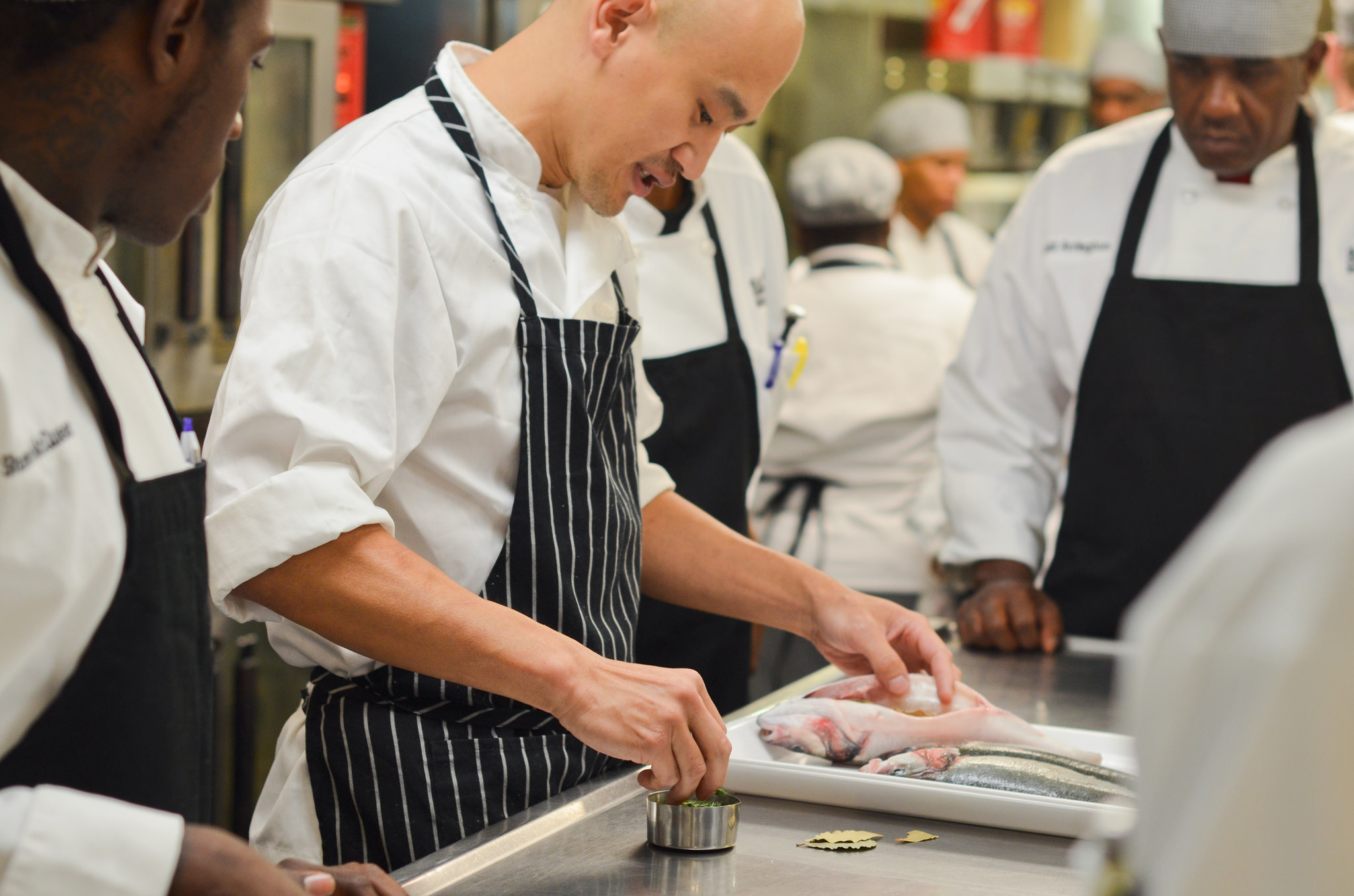
BALTIMORE, MD (August 5, 2014)
On July 29th, IMET donated 200 branzino (a European sea bass) to the Culinary Job Training Program at the DC Central Kitchen. The DC Central Kitchen is a non-profit organization, whose mission is to bring healthy food to the community through the provision of low-cost or no-cost meals, and to help eliminate food waste through a combination of their culinary training and food recycling programs.
During a week of hands-on training, students of the program were able to utilize the donated fish to learn and practice new culinary techniques, taught to them by local-area chefs. Both IMET and the DC Central Kitchen believe that this could become a long-standing partnership.
Read more about IMET's donation and the DC Central Kitchen here.
July 24, 2014
Dr. Sook Chung heads up "Crab Lab" summer program for teens
BALTIMORE, MD (July 23, 2014)
For one week this summer, Dr. Sook Chung, Associate Professor at the University of Maryland Center for Environmental Science's Institute of Marine and Environmental Technology, led a group of four Baltimore-area teens in studying marine life at what is often referred to as Maryland's "Crab Lab". Dr. Chung recruited the students, now rising 9th graders, to have the chance to study marine biology in one of the country's premier laboratories. The week-long experience will focus on the study of the effects of the environment on Maryland's best-known crustacean; the crab.
July 17, 2014
IMET receives $600,000 Ratcliffe Foundation grant to support program in entrepreneurial leadership
BALTIMORE, MD (July 10, 2014)
The Philip E. and Carole R. Ratcliffe Foundation has awarded the Institute of Marine and Environmental Technology (IMET) in Baltimore a three-year, $600,000 grant to initiate the Ratcliffe Environmental Entrepreneurs Fellowship (REEF) Program. This new effort has been formed to help young scientists cultivate the leadership and business skills necessary to bring their bench research into commercial markets.
The REEF Program will prepare students to work with private enterprise and to gain a more informed appreciation of the potential business implications of their research discoveries. This effort will help some students to start their own small businesses in environmental science and better prepare others for careers in large companies.
July 14, 2014
With 'biological sunscreen,' mantis shrimp see the reef in a whole different light
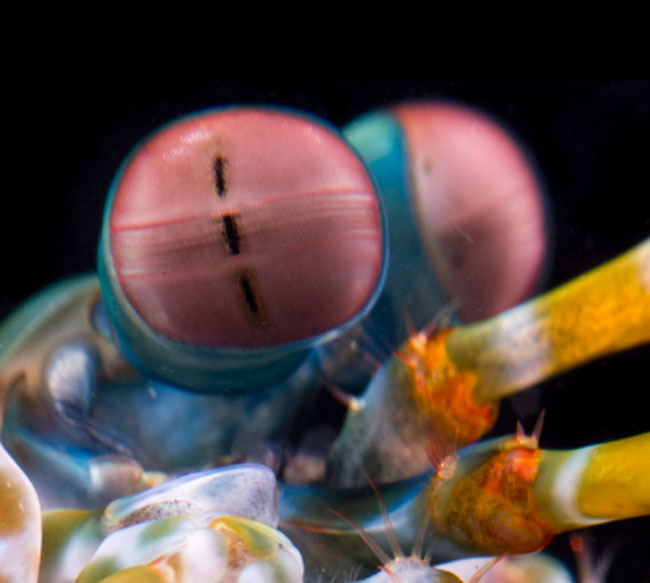
BALTIMORE, MD (July 3, 2014)
In an unexpected discovery, researchers from the University of Maryland Baltimore County and the University of Maryland Center for Environmental Science have found that the complex eyes of mantis shrimp are equipped with optics that generate ultraviolet (UV) color vision. Mantis shrimp's six UV photoreceptors pick up on different colors within the UV spectrum based on filters made from an ingredient other animals depend on as built-in biological sunscreen, according to research reported in the Cell Press journal Current Biology on July 3.
July 8, 2014
Seminar 7/9/14 at 3:00 pm
There is no seminar scheduled for this date.
June 30, 2014
Seminar 6/30/14: Colleen Burge, Cornell University
MONDAY 30 June 2014 at Noon
*** Please note this seminar will be on a MONDAY at noon. ***
Title: “Host-Pathogen Interactions in a Changing Ocean”
Speaker: Dr. Colleen Burge
Cornell University
Abstract:
TBD
Host: Dr. Russell Hill Ph.D.
June 25, 2014
Seminar 6/25/14 at 3:00 pm
There is no seminar scheduled for this date.
June 19, 2014
Jeanette Davis selected as Class of 2015 Sea Grant Knauss Finalist
Jeanette Davis, a Ph.D. student at the Institute of Marine & Environmental Technology, has been selected a Class of 2015 Sea Grant Knauss Finalist. The Sea Grant Knauss Fellowship provides a unique educational experience to graduate students who have an interest in ocean, coastal and Great Lakes resources and in the national policy decisions affecting those resources.
More information on the Sea Grant Knauss Finalists can be found here.
June 18, 2014
Seminar 6/18/14: Dr. Arun Dhar, BrioBiotech
Wednesday 18 June 2014 at Noon
*** Please note this seminar will be at noon. ***
Title: “Developing vaccines and anti-viral therapies in aquaculture: Implications on vaccine development in humans”
Speaker: Dr. Arun Dhar
BrioBiotech
Abstract:
Viral disease is a major challenge in the sustainable growth of fish and shellfish farming globally. Viruses, such as infectious pancreatic necrosis virus (IPNV), infectious salmon anemia virus (ISAV), infectious hematopoietic necrosis virus (IHNV), viral hemorrhagic septicemia virus (VHSV), and viral nervous necrosis (VNN), are major pathogens of fin fish worldwide. Vaccination of farmed fish plays an important role in commercial fish farming to mitigate viral diseases. Virus-like particle (VLP)-based injection and oral vaccine was developed against infectious pancreatic necrosis (IPN) caused by IPNV. Rainbow trout vaccinated with IPNV VLPs provided protection against infectious virus. IPNV VLPs were found to tolerate the insertion of foreign epitope (such as human oncogene, c-myc, antigenic epitope of hemagglutinin protein of ISAV) opening a new ways to developing bi-/ multivalent vaccine against viral diseases in fish.
Unlike fish, shellfish such as shrimp do not have adaptive immunity and development of antiviral therapies remains a major challenge for high intensity shrimp aquaculture. Taura syndrome virus (TSV), white spot syndrome virus (WSSV), infectious hypodermal hematopoietic necrosis virus (IHHNV), yellowhead virus (YHV), and infectious myonecrosis virus (IMNV) are the major viral pathogens in shrimp. A reverse genetics approach was adopted to engineer TSV, a single-stranded (+ve) sense RNA virus. Using a baculovirus vector, fully-assembled, infectious TSV was generated in non-host insect and mammalian cells. Infectivity assays, histopathology and transcription mapping revealed that recombinant TSV generated in these non-host cells were similar in pathogenicity to wild-type virus. The ability to produce a fully-assembled infectious virus in non-host cells was further adapted to engineering human hepatitis C virus (HCV). HCV is the major cause of chronic liver disease, liver cirrhosis and primary liver cancer in human. Using a baculovirus vector, a fully-assembled HCV was generated in insect cells. Non-host virus amplification technology provides a unique approach to developing vaccine against diseases caused by viruses that are difficult to culture in vitro and for viruses for which no immortal cell line is available.
Host: Dr. Russell Hill Ph.D.
June 11, 2014
Seminar 6/11/14: Dr. Andrew Wargo, Coll. of Wm. & Mary
Wednesday 11 June 2014 at Noon
*** Please note this seminar will be at noon. ***
Title: “Ecological and Evolutionary Drivers of Aquatic Infectious Disease Severity”
Speaker: Dr. Andrew Wargo
College of William and Mary, Virginia Institute of Marine Science
Host: Dr. Russell Hill, Ph.D.
June 5, 2014
Seminar 6/5/14: Sirinart Techa, Ph.D. Candidate
Thursday 5 June 2014 at 2:00pm
Title: “The Functional Importance and Significance of Ecdysteroids in the Regulation of Molt Cycle of the Blue Crab (Callinectes Sapidus)”
Dissertation Defense Seminar
Adviser: J. Sook Chung, Ph.D.
Search
Recent Posts
- Seminar 12/2/15: Dr. Jeremy Testa, UMCES Chesapeake Biological Laboratory
- Seminar 11/11/15: Dr. Dong Liang, UMCES Chesapeake Biological Laboratory
- IMET/Columbus Center Town Hall 10/28/15
- Seminar 9/30/15: Dr. Chris Salice, Towson University
- Seminar 9/9/15: Dr. Slava Lyubchich, UMCES Chesapeake Biological Laboratory
- Seminar 6/29/15: Dr. Berta Levavi-Sivan, Hebrew University
- Seminar 6/3/15: Dr. Todd Kuiken, The Wilson Center
- High School Intern from Place Lab recipient of multiple awards
- IMET Town Hall 5/27/15
[What is this?]
Categories
Archives
- December 2015
- November 2015
- October 2015
- September 2015
- June 2015
- May 2015
- April 2015
- March 2015
- February 2015
- January 2015
- December 2014
- November 2014
- October 2014
- September 2014
- August 2014
- July 2014
- June 2014
- May 2014
- April 2014
- March 2014
- February 2014
- January 2014
- December 2013
- November 2013
- October 2013
- September 2013
- August 2013
- July 2013
- June 2013
- May 2013
- April 2013
- March 2013
- February 2013
- January 2013
- December 2012
- November 2012
- October 2012
- September 2012
- August 2012
- July 2012
- June 2012
- May 2012
- April 2012
- January 2012
- December 2011
- September 2011
- August 2011
Movable Type 3.34



